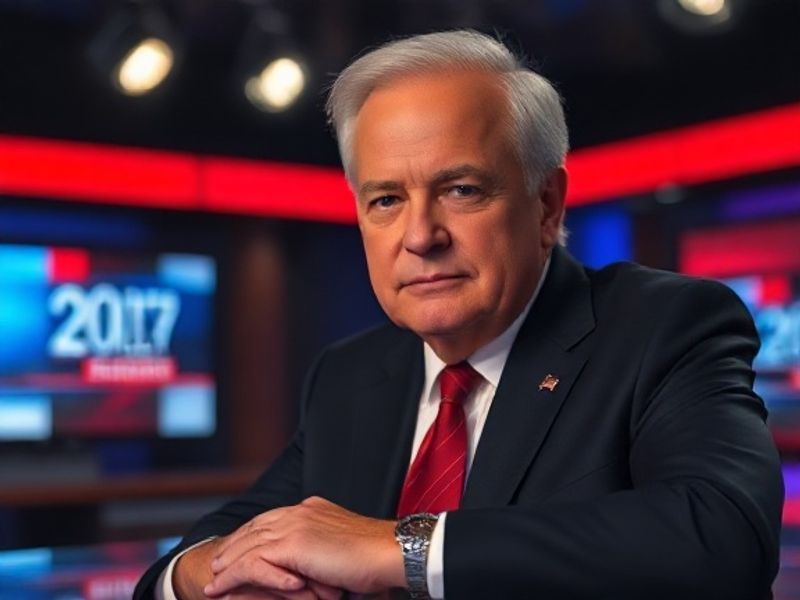How Bill O’Reilly Shouted Over the Whole Planet—and Sold the Echo
The Last King of Cable: Bill O’Reilly’s Global Afterglow
By our man in the departure lounge, still waiting for the apocalypse
They say every empire exports its worst habits first. If that’s true, Bill O’Reilly was the 21st-century equivalent of sending smallpox-infected blankets overseas: a loud, indignant comforter stuffed with self-certainty and manufactured grievance. From Kiev to Karachi, his “No-Spin Zone” became a lingua franca for political entertainment—translated badly, imitated shamelessly, and monetised ruthlessly. The surprise isn’t that he finally fell; it’s that the rest of the planet spent two decades photocopying the blueprint before noticing the smudges.
Abroad, O’Reilly was never merely an American blowhard; he was a genre. Brazilian cable splintered into “Opinião Militante,” Polish television birthed “Wiadomość z Wrażeniem,” and Philippine noontime shows discovered you could yell about contraception and still sell detergent. Each local variant dialled the nationalism up or down, but the formula—aging man, shiny desk, moral panic—proved universally profitable. Researchers at the University of Leicester recently calculated that every minute of O’Reilly-style outrage exported adds roughly 0.3 microns to the planet’s collective blood-pressure index. They’re lobbying the WHO to classify it as a second-hand emission.
Of course, the avalanche of sexual-harassment settlements that ended his Fox reign translated poorly in cultures already bored by American hypocrisy. In France, the news merited a single shrug in Le Monde—page 14, next to a story about artisanal beeswax. In Saudi Arabia, commentators asked why a few million dollars in hush money should matter when the same network still sells fighter-jet advertisements between segments on family values. Even the Chinese censors, usually delighted to highlight decadent Western morals, passed; they had their own celebrity disappearances to manage.
Yet the ghost of O’Reilly-era infotainment haunts more than ratings ledgers. In India, prime-time anchors now shout down Oxford-educated economists with the same interruptive gusto, except the topic is whether Muslim street vendors are laundering rupees for Pakistan. Hungary’s state broadcaster copied the “Talking Points Memo” chyron, replacing it with “Nemzeti Figyelmeztetés” (“National Warning”), helpfully colour-coded to let viewers know when to feel threatened by Brussels, Soros, or Tuesday. Viewership soars; advertisers swoon; democracy develops a nervous twitch.
The darker joke is that O’Reilly’s most durable export wasn’t ideology—it was business model. Convince the audience they’re under siege, sell them the siege ladder, then blame competitors for the broken rungs. International networks learned they could monetise fear faster than crypto-miners burn coal. Analysts at Deutsche Bank estimate the global “outrage economy” will top $6.7 billion by 2026, overtaking online porn but still trailing small-arms sales by a respectful margin. Somewhere a consultant is PowerPointing that slide right now, probably shirtless.
Still, every planetary plague needs its superspreader, and O’Reilly’s unique cocktail of Catholic moralism, blue-collar cosplay, and weaponised nostalgia played surprisingly well beyond U.S. borders. His books—translated into 19 languages, including an Albanian edition optimistically titled “Killing Lincoln for the Balkans”—sit in airport kiosks next to duty-free Toblerone, promising foreigners a shortcut to understanding American exceptionalism without the hassle of reading history. Italians bought it for the conspiracy theories; Singaporeans for the grammar tips. Both came away convinced the U.S. Civil War could have been averted with firmer bedtime policies.
What dies with the O’Reilly era, then, isn’t the character but the naïve belief that he was unique. The satellites still beam the same lucrative anger, only now it wears a local accent and trades pinstripes for military fatigues or hemp shirts, depending on the target demographic. The final irony: the man who branded “no spin” became the globe’s top centrifuge, separating audiences from their money, their time, and—if you believe the Leicester study—their will to live. History will note that Bill O’Reilly didn’t just shout over guests; he shouted over entire hemispheres. The echo is quieter now, but the profit margin hums on, a low, persistent thrum beneath every anxious heartbeat from Akron to Ankara.







